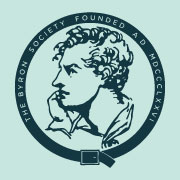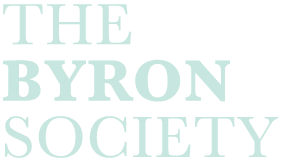In honour of the 2019 bicentennial of the publication of the first two Cantos of Byron’s ground-breaking and highly controversial amatory epic Don Juan we are collaborating with Peter Gallagher to produce a series of blogs exploring the vexed question of this great poem’s enduring popularity – or rather its lack…
We will be expanding this list of excellent blogs as the year progresses, and they will also be included in our main page for All Things Byron.
[ezcol_1half]
 [/ezcol_1half] [ezcol_1half_end] Don Juan: The Greatest Comic Poem in English
[/ezcol_1half] [ezcol_1half_end] Don Juan: The Greatest Comic Poem in English
Germaine Greer once observed that Don Juan is the greatest comic poem in English. It should be as popular, she thought, as Ariosto’s Orlando Furioso in Italy or, for that matter, Pushkin’s Eugene Onegin in Russia. True, in my view! [/ezcol_1half_end]
[ezcol_1third]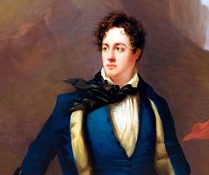 [/ezcol_1third] [ezcol_2third_end]Don Juan: Who needs it, who reads it?
[/ezcol_1third] [ezcol_2third_end]Don Juan: Who needs it, who reads it?
As the greatest comic poem in the language, Don Juan should have a much wider audience among English-speakers everywhere.That’s more than a billion people who could be happier, wiser and… yes, wealthier (if you believe Byron….[/ezcol_2third_end]
[ezcol_1quarter]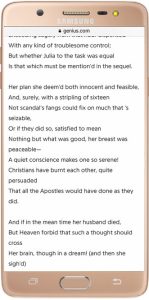 [/ezcol_1quarter] [ezcol_3quarter_end]Don Juan: Sense From Sound
[/ezcol_1quarter] [ezcol_3quarter_end]Don Juan: Sense From Sound
15th April 2019
The way people read these days poses challenges for the publisher of poetry as I explained last time. It’s hard to show the verse of Don Juan’s verse in unbroken lines across the narrow confines of a phone screen. Unless, you choose a font size so small that it’s hard to read anyway…. [/ezcol_3quarter_end]
[ezcol_1third]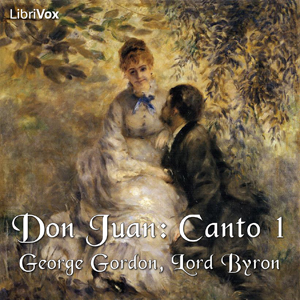 [/ezcol_1third] [ezcol_2third_end] Narrating Byron’s Amatory Epic
[/ezcol_1third] [ezcol_2third_end] Narrating Byron’s Amatory Epic
29th April 2019
I’m preparing to publish (“free”) an annotated and narrated edition of Cantos I & II of Byron’s Don Juan on the bicentenary of their first London publication this July. But “why narration”? Aren’t there already several readings? Do we need another? [/ezcol_2third_end]
[ezcol_1third]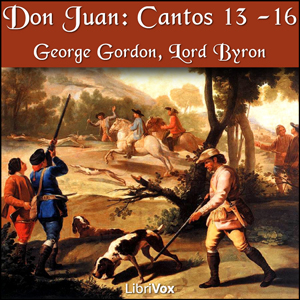 [/ezcol_1third] [ezcol_2third_end] Comic Mobility in Don Juan
[/ezcol_1third] [ezcol_2third_end] Comic Mobility in Don Juan
20th May 2019
Reading aloud, or listening to the poem, works well for Don Juan for two reasons. First, it’s a personal statement. The narrative, when there is one, never much conceals the narrator and, where there’s any danger it might, Byron steps forward to direct our attention… [/ezcol_2third_end]
[ezcol_1third]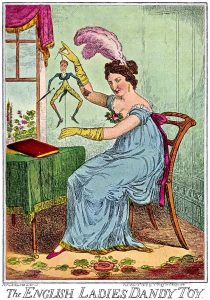 [/ezcol_1third] [ezcol_2third_end] The comic role of ”Byron”
[/ezcol_1third] [ezcol_2third_end] The comic role of ”Byron”
3rd June 2019
If there were such a competition, I would vote for Don Juan as the greatest comic poem in English. But some distinguished critics consider Byron a psychological light-weight; someone who won’t face up to (either) his internal turmoil and feelings of culpability (or, alternately) his inner ‘hollowness’ by which is meant, I guess, a lack of insight. That diminishes his fame, they say.
[/ezcol_2third_end]
[ezcol_1third] [/ezcol_1third] [ezcol_2third_end] Comic Method in Don Juan
[/ezcol_1third] [ezcol_2third_end] Comic Method in Don Juan
17th June 2019
I want to conclude this series on the ‘mobility’ of Bryon’s comic performance in Don Juan with a slightly longer post (apologies!). I think there’s an aspect of Byron’s art that his most severe critics seem to have missed although, to me, it seems obvious. In brief, Byron may be a contemporary of the great English Romantic poets (Wordsworth, Keats, Coleridge) but he shares little of their interest in introspective reflection on metaphysics or psychology. [/ezcol_2third_end]
Peter Gallagher (@madbaddangerous) blogs at https://madbaddangerous.com. He plans to publish an annotated and narrated version of Cantos I and II of Don Juan later this year in celebration of the bi-Centenary of the first publication of greatest comic poem in English.
